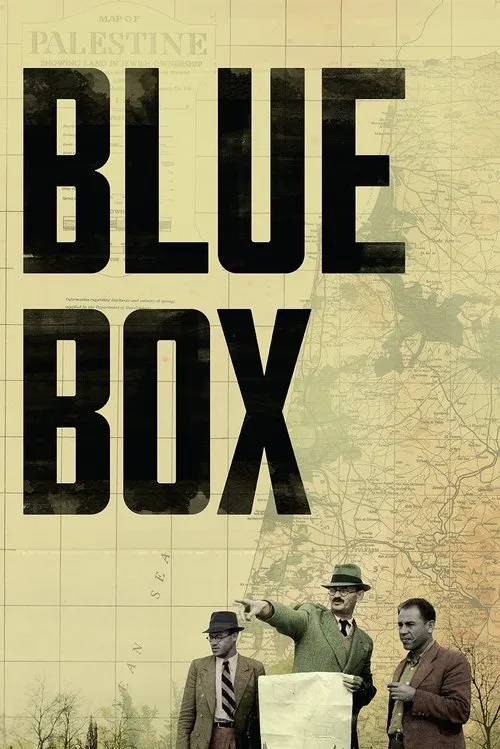Blue Box

Enredo
Blue Box is a documentary film that delves into the history and significance of the Jewish National Fund's (JNF) Blue Boxes. These small, blue donation boxes were placed in synagogues and Jewish community centers across the world, serving as a global fundraiser to purchase land in Israel. The film weaves together the diary entries of one of the co-founders, David Wolff, and the memories of his descendants to uncover the myths that constructed a national icon. The story begins with David Wolff, a passionate Zionist and one of the key figures behind the creation of the JNF. Wolff's diary entries provide a unique glimpse into the inner workings of the organization and the struggles that its founders faced. As the film progresses, it shifts its focus to Wolff's descendants, who share their own recollections and experiences with the Blue Boxes. Through these narratives, Blue Box paints a complex portrait of the JNF and its impact on the Jewish community. The film highlights the organization's role in shaping the modern State of Israel, from land purchases to infrastructure development. It also explores the ways in which the JNF's efforts contributed to the displacement of Palestinian Arabs, a painful and contentious aspect of Israeli history. The film, however, is not simply a historical account. Rather, it is an exploration of the myths and symbolism that have surrounded the Blue Boxes over the years. The small, blue boxes became a ubiquitous presence in Jewish communities worldwide, serving as a symbol of national pride and solidarity. They were seen as a tangible connection to the land of Israel, and a way for Jews to contribute to the Zionist cause. Through a combination of archival footage, interviews, and historical documents, Blue Box reveals the mechanisms by which these myths were created and perpetuated. It examines the role of propaganda, marketing, and public relations in shaping the JNF's image and message. The film also investigates the ways in which the Blue Boxes were used as a tool for social control, subtly pressuring individuals to contribute to the Zionist cause. One of the most compelling aspects of the film is its use of oral history. Wolff's descendants, spanning multiple generations, share their own personal experiences with the Blue Boxes. Their memories are often fragmentary and impressionistic, revealing a patchwork of emotions, desires, and anxieties. These testimonies create a sense of intimacy and immediacy, drawing the viewer into the world of the film. In addition to its oral histories, Blue Box incorporates a range of visual and textual materials. From vintage photographs and advertisements to newspaper articles and archival footage, the film provides a rich visual tapestry that illustrates the JNF's activities and influence. The cinematography is simple yet evocative, capturing the humble, unassuming quality of the Blue Boxes. Through its exploration of the JNF's Blue Boxes, Blue Box challenges viewers to think critically about the ways in which national icons are constructed and mythologized. It asks difficult questions about the relationship between national identity, collective solidarity, and individual conscience. The film's nuanced and multifaceted approach will appeal to anyone interested in the complex and often contentious history of the State of Israel. Ultimately, Blue Box presents a thought-provoking and deeply human portrait of the JNF and its Blue Boxes. By examining the myths and symbolism that have surrounded these small, blue donation boxes, the film reveals the intricate web of emotions, desires, and ideologies that have shaped the Jewish experience over the past century. Through its use of archival footage, oral histories, and visual materials, Blue Box provides a rich and nuanced exploration of the JNF's legacy, inviting viewers to reflect on the complex and often fraught nature of national identity.
Resenhas
Recomendações



